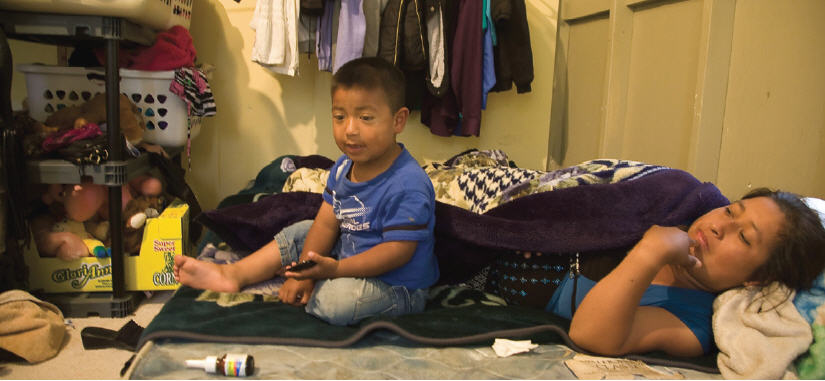Much of the recent efforts to weed out sexual harassment in the workplace is concentrated in the nonagricultural sectors. Strides made in other industries need to be duplicated in agriculture, where too many vulnerable women continue to toil in hostile and demeaning environments.
Combating Sexual Harrasment
"I had walked in to the CRLA office in Salinas seeking assistance for a problem with my employer when it seemed like no one could help," states Blanca Alfar. "I wanted to know if CRLA could help me demand payment from my employer. I had been suspended for missing work. The staff at CRLA spent so much time talking to me and trying to understand my situation that I felt that I could really trust them," she admits. "I explained the embarrassing truth, that I had been subjected to repeated sexual harassment on the job." This disclosure started two and a half years of intensive investigation and negotiations. Ms. Alfaro's claims became the linchpin for one of the largest monetary settlements ever obtained from an agricultural employer for alleged sexual harassment.

Had Ms. Alfaro called in to a telephone legal assistance hotline, she probably would have been immediately referred out to a private attorney or another agency. Had she walked in to a typical legal aid office, she probably would have been immediately referred out as well since her problem seemed to lack a legal remedy. However, Blanca walked in to CRLA's Salinas office, an office that tries to have an indepth interview with every farm worker who walks in the door with any type of employment related complaint. Treating an individual with dignity and imparting some basic information about employment law may sometimes be exactly what it takes and all that is required.
Along with their partners at the Golden Gate University Women's Employment Rights Clinic and the Equal Employment and Opportunity Commission, CRLA was able to convince Blanca's employer to establish a $1.855 million dollar settlement fund which includes a confidential settlement for Ms. Alfaro and a claims fund for other farm workers who alleged that they suffered sexual harassment or retaliation from Tanimura & Antle, Inc., one of the largest produce companies in the nation.
While CRLA is happy with the settlement that was reached, there are also many humbling questions. For example, even though the Salinas CRLA office is part of CRLA's statewide Sexual Harassment Project that seeks to aggressively provide outreach and education to farm worker women about sexual harassment laws and their rights, why didn't Blanca Alfaro know that CRLA could assist her with her sexual harassment case? Blanca lived literally across the street from the CRLA office but thought that the nearest office that could assist her with her sexual harassment claims was 60 miles away in San Jose. CRLA's efforts are merely a drop in the bucket in the face of the rampant sexual harassment that pervades the agricultural industry. CRLA must keep concentrating its efforts to insure that as many farm worker women as possible are aware of their rights and have the knowledge that they can come to CRLA for assistance in asserting those rights.

Photos by: David Bacon
Much of the recent efforts to weed out sexual harassment in the workplace is concentrated in the nonagricultural sectors. Strides made in other industries need to be duplicated in agriculture, where too many vulnerable women continue to toil in hostile and demeaning environments. CRLA offices hear far too regularly about women still being asked to exchange sexual favors for agricultural jobs and about farm workers continually being subjected to inappropriate sexual comments and other harassment. Farmworker women still fear losing their jobs or other forms of retaliation for speaking out against such harassment. The EEOC's commitment to focus on sexual harassment cases in agriculture is a positive sign, and along with CRLA's ongoing work; everyone is hopeful that improvements will come. Blanca Alfaro gives us more concrete evidence that we must continue the uphill battle to extend civil rights enjoyed by others, to a work force generally forgotten by mainstream institutions.
